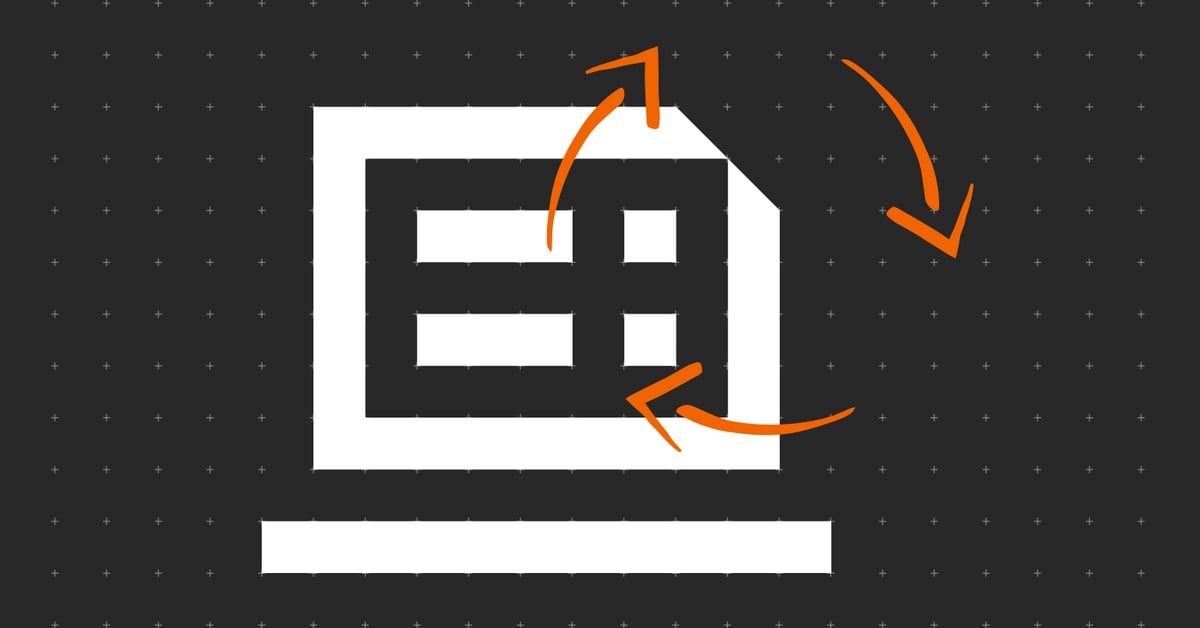Kyocera Intelligent Automation Platform
Enhance People and Business Processes

Business Process Automation enables organisations of all sizes to increase productivity while reducing costs, along with increasing profits and improving employee morale. By streamlining processes, adopting new sophisticated technology solutions and automating human repetitive tasks, workers can focus on improving customer service and regain the time and freedom to focus on other growth opportunities.
What is the Kyocera Intelligent Automation Platform?
-
It's a dynamic and intelligent platform that automates business processes across all verticals.
-
Can be utilised across all organisation sizes from small businesses through to large corporations.
-
The platform solution is a subscription model which can be implemented into your organisation within a matter of weeks. As the automation process is carried out online there is also no need for expensive onsite hardware.
-
We understand that every organisation is different so our solution process methodology will align smart technology to your business processes.
-
It's the conduit between your department applications, whether that's your CRM, HR systems or ERP and Accounting software, regardless of size. The Kyocera Intelligent Automation Platform is not a replacement for these systems. Instead, it facilitates the flow of information from one to the other automatically while securely ensuring accurate and timely data.
Some common use cases for automation include:
An automation platform provides organisations with the flexibility to transform and thrive.
 Repetitive human tasks, such as data entry or administrative tasks
Repetitive human tasks, such as data entry or administrative tasks
 Content distribution and management
Content distribution and management
 Certain types of decision-making
Certain types of decision-making
 Business workflows
Business workflows
 Accounting or financial functions such as Accounts Payable & Statement Reconciliation
Accounting or financial functions such as Accounts Payable & Statement Reconciliation
 Employee onboarding/offboarding
Employee onboarding/offboarding

Platform automation: Achieve efficiency on another level
A Business Process Automation platform provides organisations with the flexibility to transform and thrive.
Talk to us, we're human
Our support team are here to help you with any queries about Kyocera products and services.
FAQ
-
What is accounts payable automation?
Accounts payable automation uses software to streamline invoice processing, approval workflows and payment execution, eliminating manual data entry and paper-based processes. These systems automatically capture invoice data through OCR, match invoices with purchase orders and receiving documents, route invoices through approval chains based on business rules, flag exceptions for review, and integrate with accounting systems for payment processing. AP automation reduces processing costs, accelerates payment cycles, improves vendor relationships and provides real-time visibility into cash flow commitments. Intelligent Automation Platform automates business processes across all verticals with rapid implementation. Automated invoicing can reduce costs from $27-30 per invoice to less than $10. How to improve accounts payable processes includes centralisation, automated workflows and ECM integration.
-
What are the benefits of business process automation?
Business process automation delivers significant benefits including increased productivity by eliminating repetitive manual tasks, improved accuracy through consistent application of business rules, reduced operational costs by minimising labour requirements, faster process completion times through automated workflows, enhanced compliance through standardised procedures and audit trails, better scalability to handle volume increases without proportional staff increases, and improved employee satisfaction by freeing workers from tedious tasks to focus on strategic activities. Organisations typically achieve 40-75% cost savings and can see ROI within weeks of implementation. Intelligent Automation Platform enables productivity increases while reducing costs and improving employee morale. Process automation services help organisations work faster and smarter through eliminating manual intervention. Business automation generates value and supports growth across organisations.
-
What is workflow automation software?
Workflow automation software streamlines business processes by automatically routing tasks, documents and information between people and systems according to predefined business rules. These platforms enable organisations to design workflows visually, define approval hierarchies and decision points, trigger actions based on specific events or conditions, track process progress in real time, send notifications and reminders automatically, and integrate with existing business applications. Workflow automation eliminates bottlenecks, ensures consistent process execution and provides complete visibility into operational status. Intelligent Automation Platform connects departmental applications including CRM, HR, ERP and accounting systems. Process automation streamlines repetitive tasks with customisable workflows. Document workflow automation significantly reduces errors and accelerates approval cycles.
-
What are some robotic process automation examples?
Robotic process automation examples include customer service bots that automatically categorise and respond to queries, invoice processing systems that extract data and match to purchase orders, HR bots that collect and organise employee information, price comparison tools that automate vendor evaluation, data entry automation that transfers information between systems, report generation that compiles data from multiple sources automatically, email response systems that handle routine inquiries, and IT helpdesk automation that retrieves information from multiple backend systems through a single interface. RPA eliminates human error, operates continuously and frees employees for higher-value work. RPA capabilities enable organisations to automate business processes at a fraction of previous costs. Effective business transformation uses RPA for customer service, price comparison and storing customer information. Process automation eliminates manual intervention across document-intensive workflows.
-
What is CRM ERP integration?
CRM ERP integration connects customer relationship management systems with enterprise resource planning platforms, enabling seamless data flow between sales, marketing, customer service and back-office operations. This integration ensures customer information, orders, inventory levels, pricing, shipping status and financial data synchronise automatically across both systems, eliminating duplicate data entry and providing complete visibility into customer interactions and order fulfilment. Integrated CRM-ERP systems improve order accuracy, accelerate quote-to-cash cycles, enhance customer service through real-time information access and enable better business intelligence through consolidated reporting. Intelligent Automation Platform connects departmental applications including CRM and ERP systems to automate secure information flow. Process automation services facilitate seamless integration between business systems. Business solutions enable organisations to connect multiple systems for improved productivity.
-
What is financial process automation?
Financial process automation applies technology to streamline accounting, financial planning, reporting and analysis activities, reducing manual effort and improving accuracy across financial operations. This includes automating accounts payable and receivable processing, bank reconciliation, expense management, financial close processes, budget tracking, compliance reporting, and data consolidation from multiple sources. Financial automation reduces processing time by 60-70%, minimises errors, accelerates month-end closing, improves compliance through consistent procedures, and provides real-time financial visibility for better decision-making. Intelligent Automation Platform automates workflows across accounting software and financial systems. Automated invoicing saves finance departments from tedious, repetitive tasks. Financial services automation streamlines invoice processing and document workflows for accounting operations.
-
What features define a business process automation platform?
Business process automation platforms are defined by features including visual workflow designers for creating processes without coding, integration capabilities connecting multiple business applications, intelligent document processing with AI-powered data extraction, customisable business rules and decision logic, role-based access controls and security features, real-time process monitoring and analytics dashboards, scalability to handle increasing transaction volumes, mobile accessibility for on-the-go approvals, exception handling for complex scenarios, and audit trails for compliance. Leading platforms offer cloud deployment, rapid implementation and subscription-based pricing models. Intelligent Automation Platform is a dynamic platform that automates processes with rapid implementation and no expensive onsite hardware. Process automation services provide user-friendly interfaces with customisable workflows. Business solutions enable integration across sales, HR, inventory and accounting systems.
-
What is the difference between intelligent automation and RPA?
Intelligent automation combines robotic process automation with artificial intelligence, machine learning and advanced analytics to handle complex, judgment-based tasks requiring cognitive capabilities, while traditional RPA executes rule-based, repetitive tasks following predefined workflows. Intelligent automation can process unstructured data, learn from patterns, make decisions based on context, adapt to variations and exceptions, and continuously improve performance, whereas RPA works best with structured data and consistent processes. Intelligent automation addresses strategic business challenges requiring insight and adaptation, while RPA focuses on operational efficiency for routine transactions. Intelligent Automation Platform uses AI and machine learning to enhance automation capabilities. RPA systems automate routine processes but have limitations with process variation and unstructured data. Business transformation requires combining multiple automation technologies.
-
What is RPA automation?
RPA automation uses software robots or "bots" to mimic human actions and automate repetitive, rule-based tasks across applications without requiring changes to existing systems. These bots can log into applications, move files and folders, extract and structure data, fill in forms, perform calculations, process transactions, communicate between systems, and trigger responses based on predefined rules. RPA eliminates manual data entry, reduces errors, operates continuously without breaks, accelerates process completion and frees employees to focus on higher-value strategic work requiring human judgment and creativity. Robotic process automation enables organisations to automate business processes at reduced costs. RPA capabilities include customer service, price comparison, customer data storage and AP invoice processing. Process automation services eliminate manual intervention through automation technologies.
